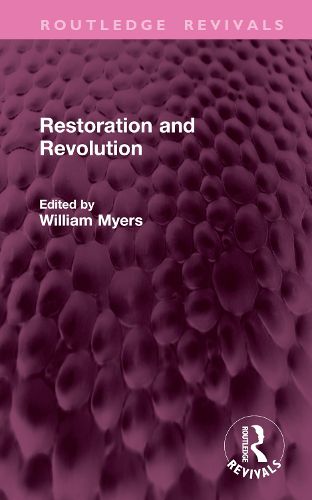Readings Newsletter
Become a Readings Member to make your shopping experience even easier.
Sign in or sign up for free!
You’re not far away from qualifying for FREE standard shipping within Australia
You’ve qualified for FREE standard shipping within Australia
The cart is loading…






The year 1688 is a turning point in English culture, and one from which can be dated numerous distinctively 'modern' notions of truth, property and political order. The texts assembled in this collection, originally published in 1986, focus on this intellectual adjustment from five related perspectives: from the traditions of social thought, philosophical thought, Anglicanism and royalism, latitudinarianism and the whig tradition, and the dissenting/radical/quietist milieu. The texts highlight not only the views that prevailed (Halifax and Locke), but those that failed (Dryden and Temple) and those that were reduced to marginality (Baxter). The substantial introduction by the editor brings out key themes such as the shifting notion of property and the related themes of inheritance, education and marriage, as well as the uneasy intellectual alliances of the period.
$9.00 standard shipping within Australia
FREE standard shipping within Australia for orders over $100.00
Express & International shipping calculated at checkout
The year 1688 is a turning point in English culture, and one from which can be dated numerous distinctively 'modern' notions of truth, property and political order. The texts assembled in this collection, originally published in 1986, focus on this intellectual adjustment from five related perspectives: from the traditions of social thought, philosophical thought, Anglicanism and royalism, latitudinarianism and the whig tradition, and the dissenting/radical/quietist milieu. The texts highlight not only the views that prevailed (Halifax and Locke), but those that failed (Dryden and Temple) and those that were reduced to marginality (Baxter). The substantial introduction by the editor brings out key themes such as the shifting notion of property and the related themes of inheritance, education and marriage, as well as the uneasy intellectual alliances of the period.